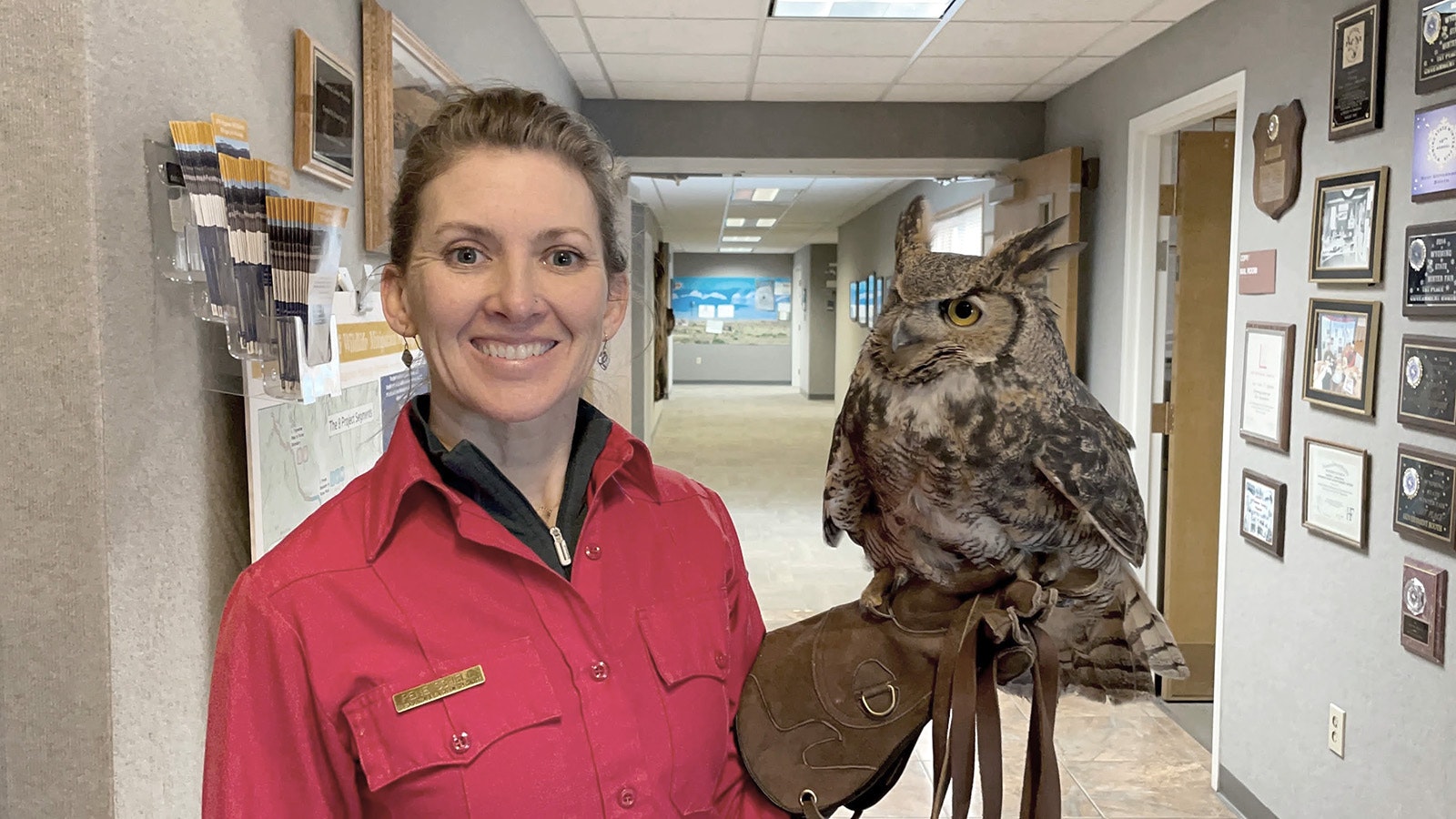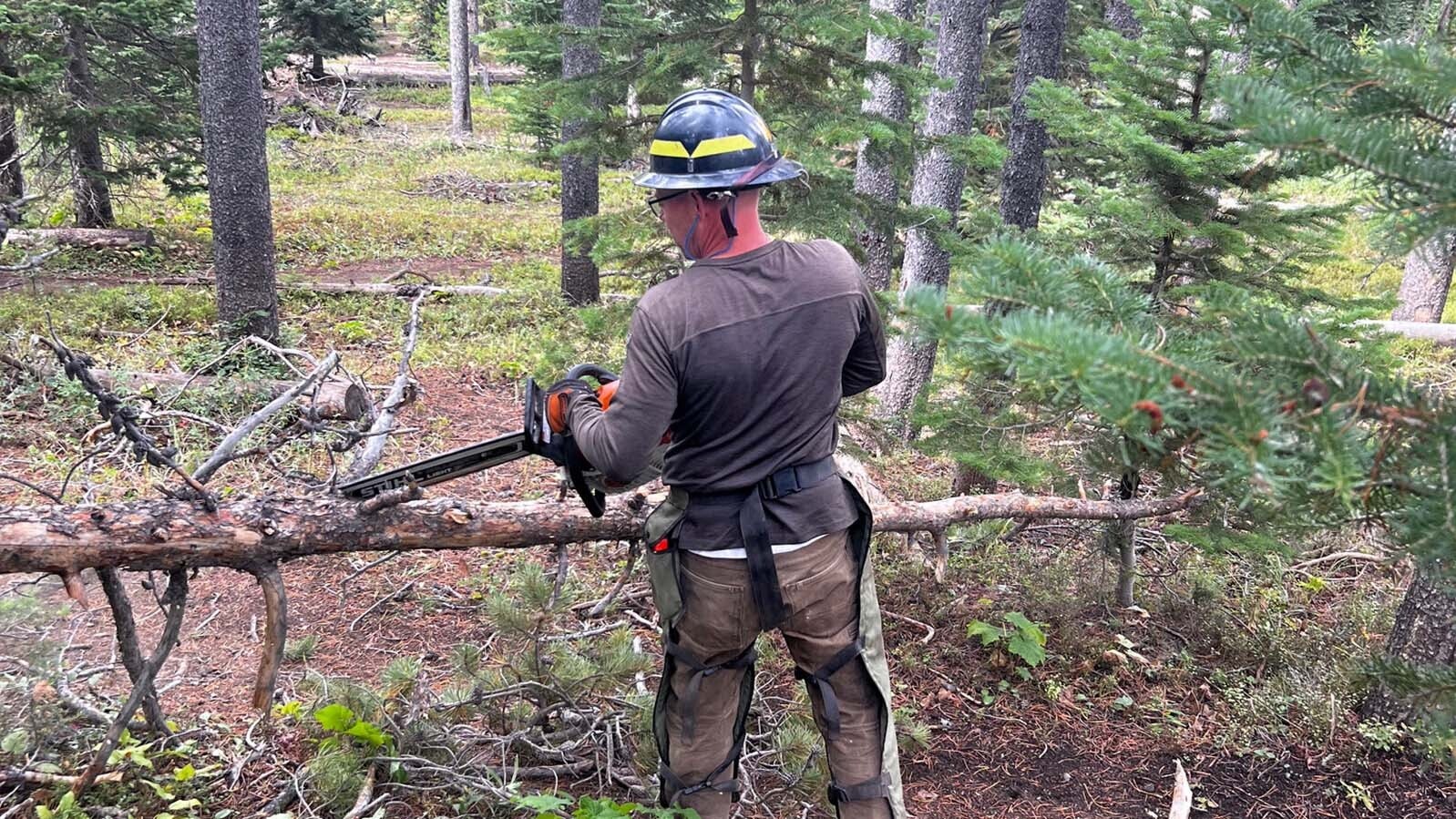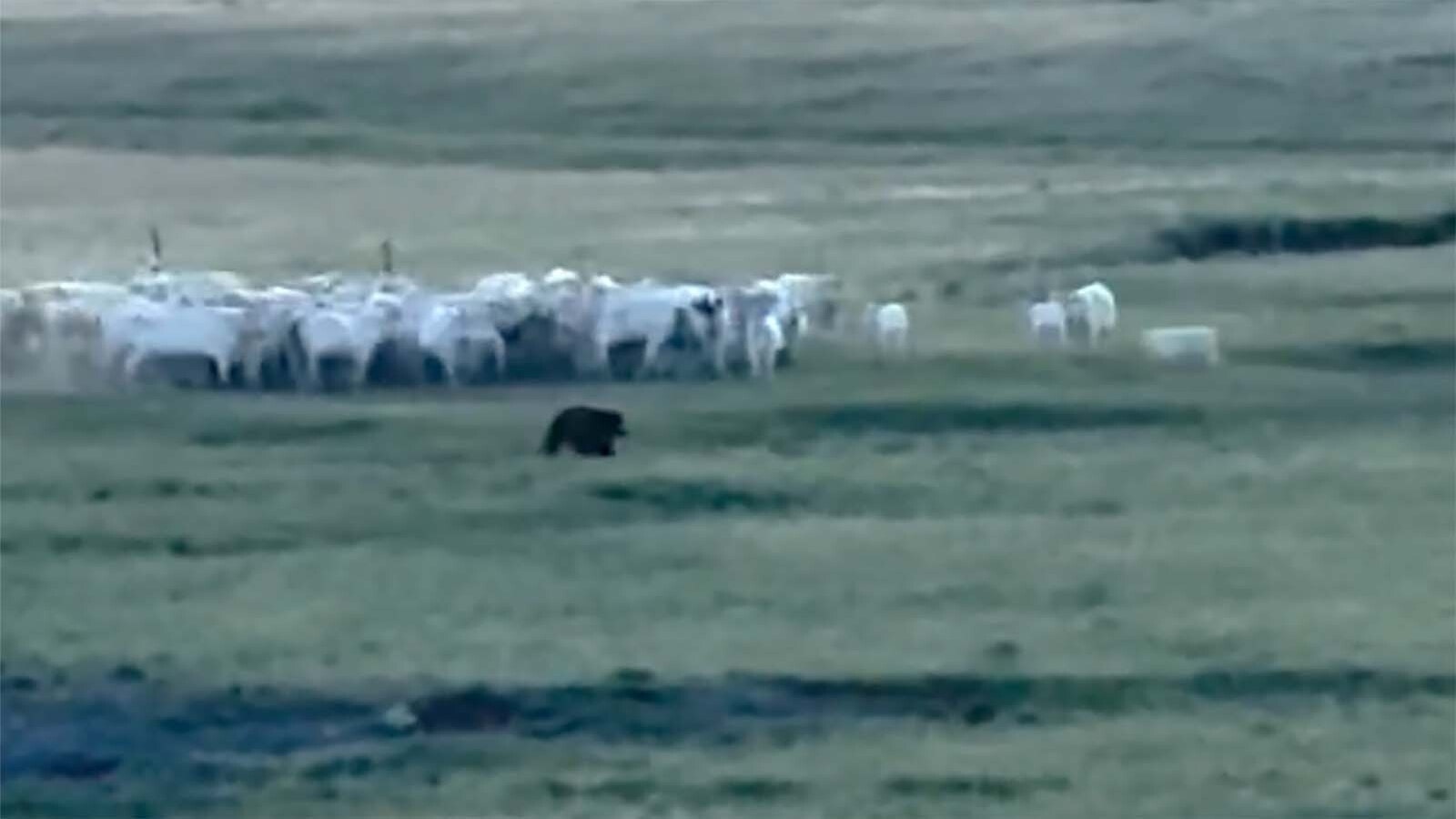One day in August 2002, some Jackson-area residents found a great horned owl on the ground in the middle of the day – not a good sign for the bird’s health.
“Some people tired to catch him and he flew right into the side of a trailer, so people were asking, ‘What’s wrong with this owl?’” Rene Schell told Cowboy State Daily.
Schell is an information and education specialist with the Wyoming Game and Fish Department’s Lander office and is one of the owl’s closest human companions.
After finally being captured in Jackson, Jupiter – as the owl was named – was sent to a raptor rehabilitation center in Cody.
At first, experts were baffled by the owl’s condition, Schell said. He had no obvious sign of illness or injury, yet it became clear something was wrong and the owl would have no chance of surviving in the wild.
“They finally figured out that he had partially detached retinas, possibly from previous head trauma,” Schell said. “He’s practically blind, he can’t hunt.”
So, Game and Fish decided to adopt Jupiter and give him a permanent home at the Lander office.

Highly Dependent On Senses
It’s true that if Jupiter hadn’t been captured and taken in he would have died quickly in the wild, non-game bird biologist Andrea Orabona told Cowboy State Daily.
Orabona was Jupiter’s first handler with the agency and remained closely involved with him until retiring from the Lander office in October.
Great horned owls prey primarily on rodents and smaller birds, and will occasionally eat snakes, she said. They hunt at night, but are highly dependent their hearing and vision – which are both incredibly sharp in healthy owls.
“Their vision is many times more powerful than a human’s,” she said. “Let’s say they hear a mouse rustling around in the grass, they can use their vision to triangulate their prey’s exact location.”
In the wild, great horned owls nest in trees but don’t build their own nests, Orabona said. “They will use nests that have been abandoned by hawks.”
The raptor at the Lander office is the second great horned owl named Jupiter the agency has kept and cared for, Orabona said. The first was found with a broken wing near Cody in the early 2000s.
Sadly, that Jupiter contracted West Nile virus from a mosquito bite and died only a few years later, she said.
“We didn’t have mosquito netting installed in his enclosure, so we made include that for the Jupiter we have now,” she said.
RELATED: An Owl Makes A Horrible Pet
Right At Home
Jupiter’s primary residence is an enclosure called a “mew,” Schnell said.
“It has branches for him to perch on and is big enough that he can get a couple of wing flaps in going from one side to the other,” she said.
And after two decades living with and interacting with humans, Jupiter isn’t anti-social. He’ll frequently join Schell in her office, sometimes offering commentary on whatever’s going on at the time.
“He’ll sit on his perch I my office, and I must say, if I’m blabbering on the phone, he’ll hoot, and I wonder if he’s responding to me, or just letting me know that he’s comfortable,” she said. “He also sometimes makes this sort a little chatter, it almost sounds like a mouse.”
Jupiter is a good public ambassador. He and Schell frequently visit schools in the Lander area to teach children about raptors. He’ll also sometimes pose on a perch for art classes.
He’s incredibly patient and unusually gentle for an owl, Schell said. But that also has his limits.
“Just last Saturday, he sat for three hours on the perch for an art class. That was sort of his max,” she said. “I could tell he was done.”
Heart Of The Matter
Jupiter doesn’t like being hand fed, Schell said. Instead, he likes food left on a shelf in his mew so he can eat at his leisure overnight.
His favorite fare is big game hearts, and local hunters usually keep him in good supply, donating hearts from their kills, Schell said.
“There aren’t too many places where you can come to work and find a heart in bag by the front door and not freak out about it,” she said.
However, the supply of big game hearts has been sparse this year, so Frank’s Butcher Shop in Hudson stepped up an donated some livestock hearts for Jupiter, she said.
“We’re really thankful to Frank’s for helping us out,” she said.
An owl can’t live on hearts alone, Schell added. Jupiter also needs food with hair and bones in it, so she buys frozen mice and chicks for him to feast on.
“They (owls) can’t digest hair and bones. So, in much the same way a cat coughs up hairballs, owls will cough up the hair and bones in what we call ‘owl pellets,’” she said. “It’s a system-cleanser for them.”
Owl pellets are a good educational aid for school children, she said.
“I’ll take owl pellets into classrooms and the kids can dissect them,” she said. “It’s like a treasure hunt. They can find the skulls and bones and figure out what the owl’s been eating.”

Long Life
Jupiter was an adult when he was captured, so he must be well over 20 years old, Schell said.
“There was an owl in captivity in California that lived to more than 50 years old,” she said. “I think 35-40 is more common” so it’s likely Jupiter still has many more good years ahead of him.
Game and Fish also isn’t completely certain that Jupiter is a male – that was surmised by his relatively small size at a weight that averages 2.67 pounds.
“In raptor species, males are smaller than females, so we think he’s probably a male,” Schell said.
Owls are endlessly fascinating creatures Orabona said. And even though she doesn’t get to see Jupiter every day anymore, she said a great horned owl lives near her house.
“He’ll perch on our weather vane at night,” she said. “In the morning, we can go out and find the regurgitated owl pellets.”
Jupiter is an invaluable educational asset for Game and Fish, she added.
“When people can see a live bird like that in person, the impressing really stays with them,” Orabona said.





